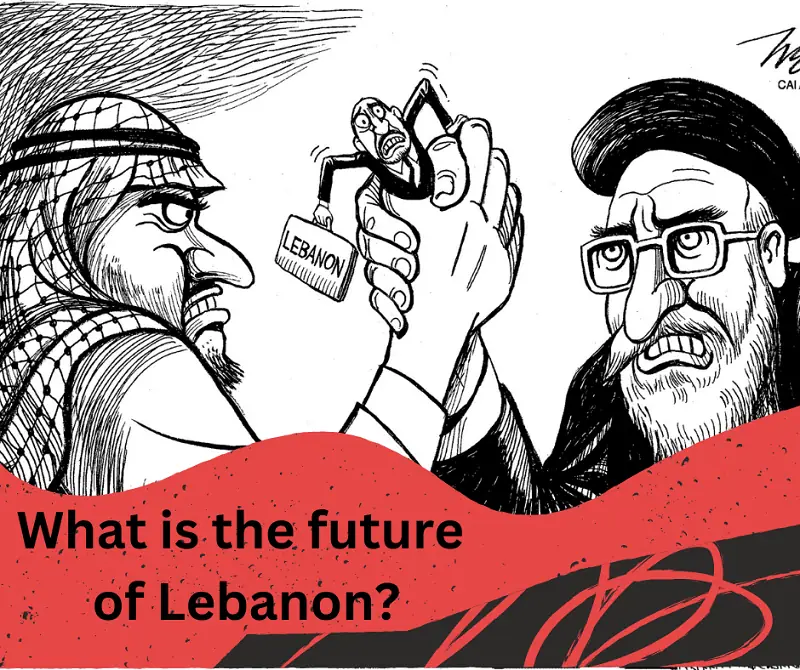The recent Saudi-Iran rapprochement has raised hopes that it could ease tensions in the region, including in Lebanon. The country has been going through a severe financial crisis exacerbated by the COVID-19 pandemic, and its relations with Saudi Arabia have been strained due to Hezbollah’s influence in the country, which is backed by Iran. In this article, we will explore what the Saudi-Iran rapprochement means for Lebanon and its future.
Overview of Saudi-Iran-Lebanese Relations
Lebanon has traditionally been a key ally of Saudi Arabia, which has provided the country with financial aid and political support. However, this relationship has been strained in recent years due to Hezbollah’s growing influence in Lebanon. Hezbollah is a Shia political and military group that is backed by Iran and has been involved in the Syrian conflict, which Saudi Arabia opposes.
In 2016, Saudi Arabia halted a $3 billion aid package to Lebanon, citing Hezbollah’s influence in the country. In 2021, Saudi Arabia and some of its Gulf Arab allies withdrew their ambassadors from Beirut following the then-Lebanese information minister’s criticism of the Saudi-led coalition’s war in Yemen. Although envoys later returned, Saudi-Lebanese ties remain strained.
Significance of Saudi-Iran deal for Lebanon
Both Hezbollah and the Lebanese caretaker Prime Minister Najib Mikati praised the Saudi-Iran deal, with Mikati calling it an “opportunity to breathe in the region and look to the future.” However, analysts caution that this does not necessarily mean that Lebanon’s relations with Saudi Arabia will improve automatically.
Hezbollah leader Sayyed Hassan Nasrallah has welcomed the agreement and said, “The rapprochement of Iran and Saudi Arabia proceeds in its normal path and can open new horizons for the region and Lebanon.”
However, Saudi Foreign Minister Prince Faisal bin Farhan has stated that Lebanon needs “Lebanese rapprochement” rather than “Saudi-Iranian rapprochement” for the situation in Lebanon to improve.
“Lebanon must [understand] its own interests, and politicians must put Lebanon’s interest before any other. Once they do this and work on building the Lebanese state, Lebanon will prosper,” he added.
This deflective answer suggests that Saudi Arabia may be separating its grievances with Lebanon from its conflict with Iran.
Moreover, Firas Maksad, a Middle East expert, has noted that Lebanon is not high on the priority of policymakers in Riyadh. He added that Lebanon is currently more important to the Iranians than it is to the Saudis, and that unless that changes, Hezbollah “in its current form” is likely to remain “the dominant player in Lebanon.,” reported CNN.
Lebanon’s future after the Saudi-Iran rapprochement
The Saudi-Iran rapprochement is unlikely to have an immediate impact on Lebanon’s financial crisis or political situation.
However, it could create an opportunity for Lebanon to distance itself from the regional conflicts that have contributed to its current predicament. A reduction in tensions between Saudi Arabia and Iran could help ease the pressure on Lebanon and encourage both countries to engage constructively with the country.
On the other hand, if Saudi Arabia continues to view Lebanon as a low priority, it may lead to further neglect of the country, exacerbating its economic and political woes. This could further strengthen Hezbollah’s influence and reduce the possibility of meaningful reforms that could address Lebanon’s problems.
Summary
The recent Saudi-Iran rapprochement has raised hopes for easing tensions in the region, including in Lebanon. However, it is unlikely to have an immediate impact on Lebanon’s situation, and there are concerns that Saudi Arabia may continue to neglect the country. Lebanon’s future depends on whether it can distance itself from regional conflicts and whether there is a willingness among regional powers to engage constructively with the country. Ultimately, the fate of Lebanon rests with its own people and leaders, who must work together to address the country’s pressing challenges.








